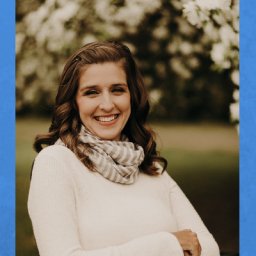At the age of 17 years old, I learned that imitation was not the sincerest form of flattery. I was born with cerebral palsy, a neuromuscular disorder that impairs the coordination of my muscles. My physical disability led me to find comfort in sitting in front of the TV, where I escaped the pain of my spastic muscles by immersing myself in the images and storylines of beloved characters. Those hours distracted me from the reality of struggling with cerebral palsy, but television’s ability to distract me ultimately wore off. While I turned to television as a means of escaping my physical difference, what I really wanted was to be acknowledged on the screen, to see someone like me represented as an ordinary person.
What I didn’t know then was that there was a phrase for this elusive experience I was seeking: media representation. When I was growing up, media representation wasn’t the buzzword it is now; it didn’t take precedence in our social consciousness until a couple of years ago, in large part due to the rise of social media. The content I consumed as a teenager on the precipice of young adulthood impacted my self-image and my understanding of the world around me in ways I wasn’t even aware of.
That all changed when I saw a single television episode caricaturizing cerebral palsy, an experience that brought to consciousness how much I yearned for an authentic portrayal of physical disability, and how its absence in media was detrimental in ways I knew without consciously knowing.
Associate Professor Dr. Nicole Martins of The Media School at Indiana University Bloomington explains that “there’s this body of research and a term known as ‘symbolic annihilation,’ which is the idea that if you don’t see people like you in the media you consume, you must somehow be unimportant.”
My moment of seeing cerebral palsy represented on television came and went in a span of 0:44 seconds on Chelsea Handler’s Chelsea Lately show. I was sitting in my childhood bedroom, its accent wall painted the wrong shade of pistachio green, with my twin sister, Kareen. Under the brightness of fluorescent overheads Kareen lounged like a cat in the sun on her twin bed while my spastic body squirmed to find a comfortable position on mine.
Chelsea Handler called my attention from our chunky Sony television set: “I don't know if you all remember Geri Jewell – she was Blair's cousin on NBC's sitcom The Facts of Life. It's a show I grew up with and have a big allegiance to. Anyway, she just happens to have cerebral palsy and she just came out of the closet. So we have a clip from her press conference that we want to show.”
My ears tickled with excitement as I heard the words “cerebral palsy.” I remember being overcome with a sense of pride, it was finally happening, I was going to see someone like myself on TV.
What followed on screen shocked me:



